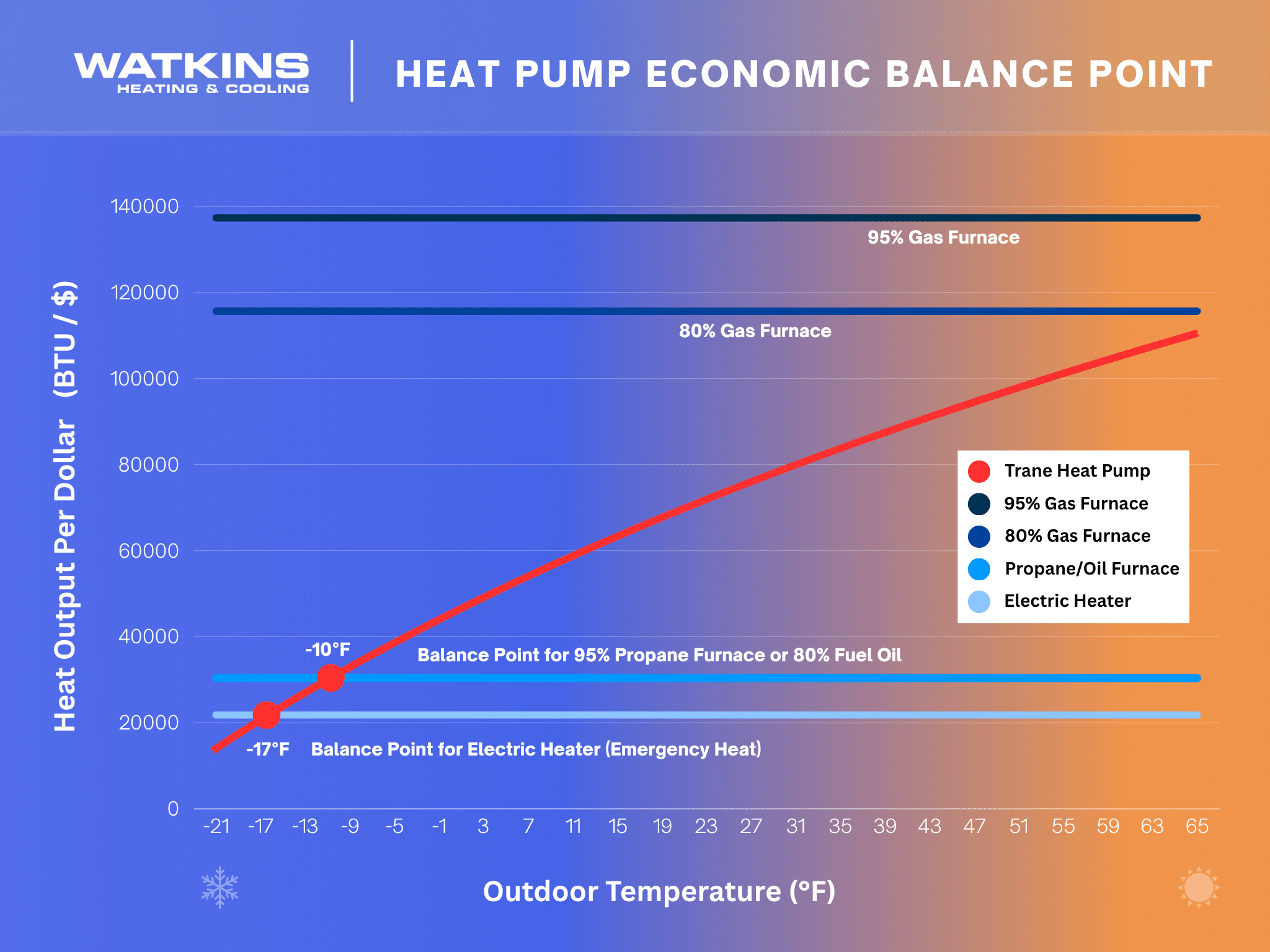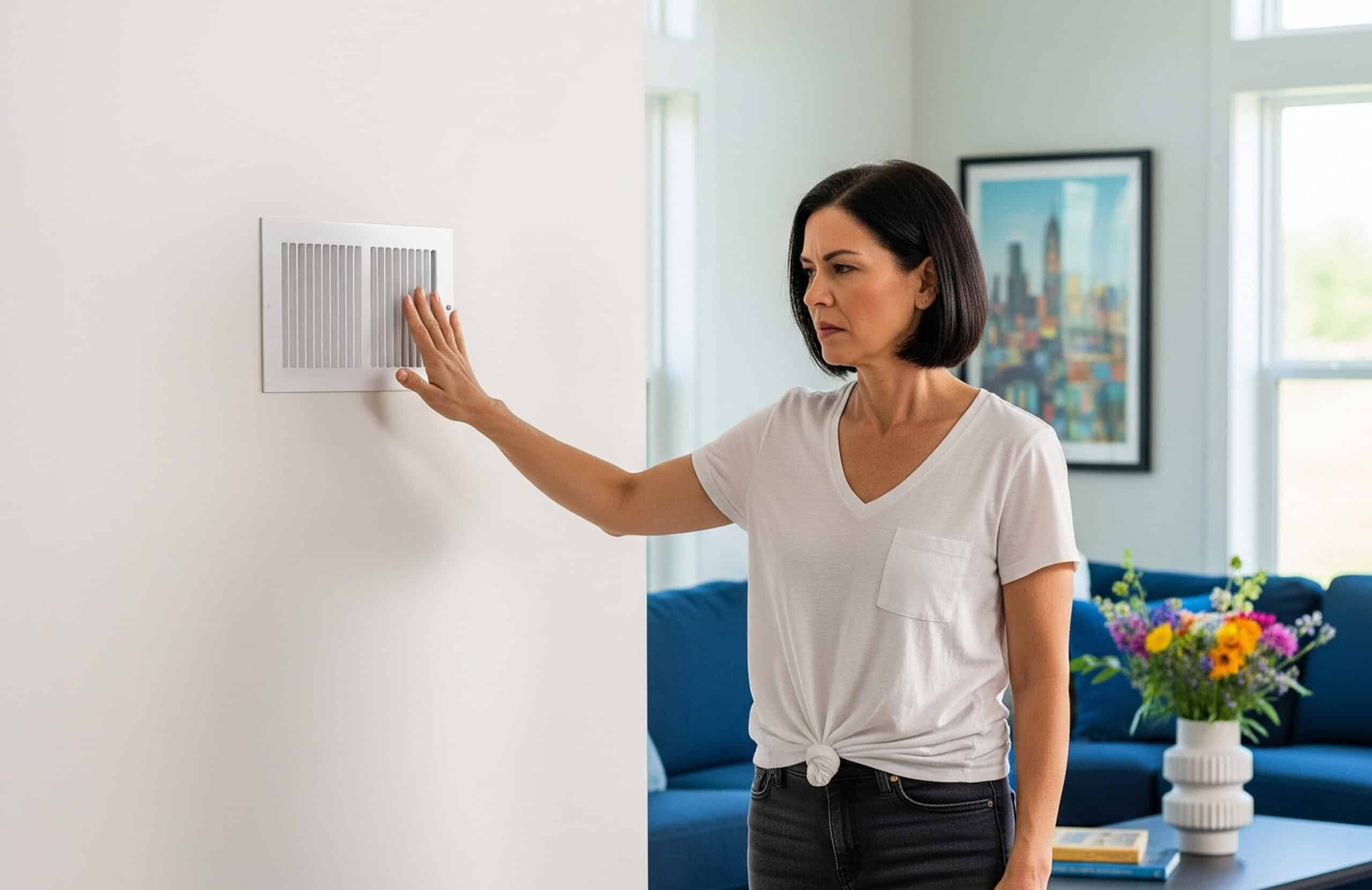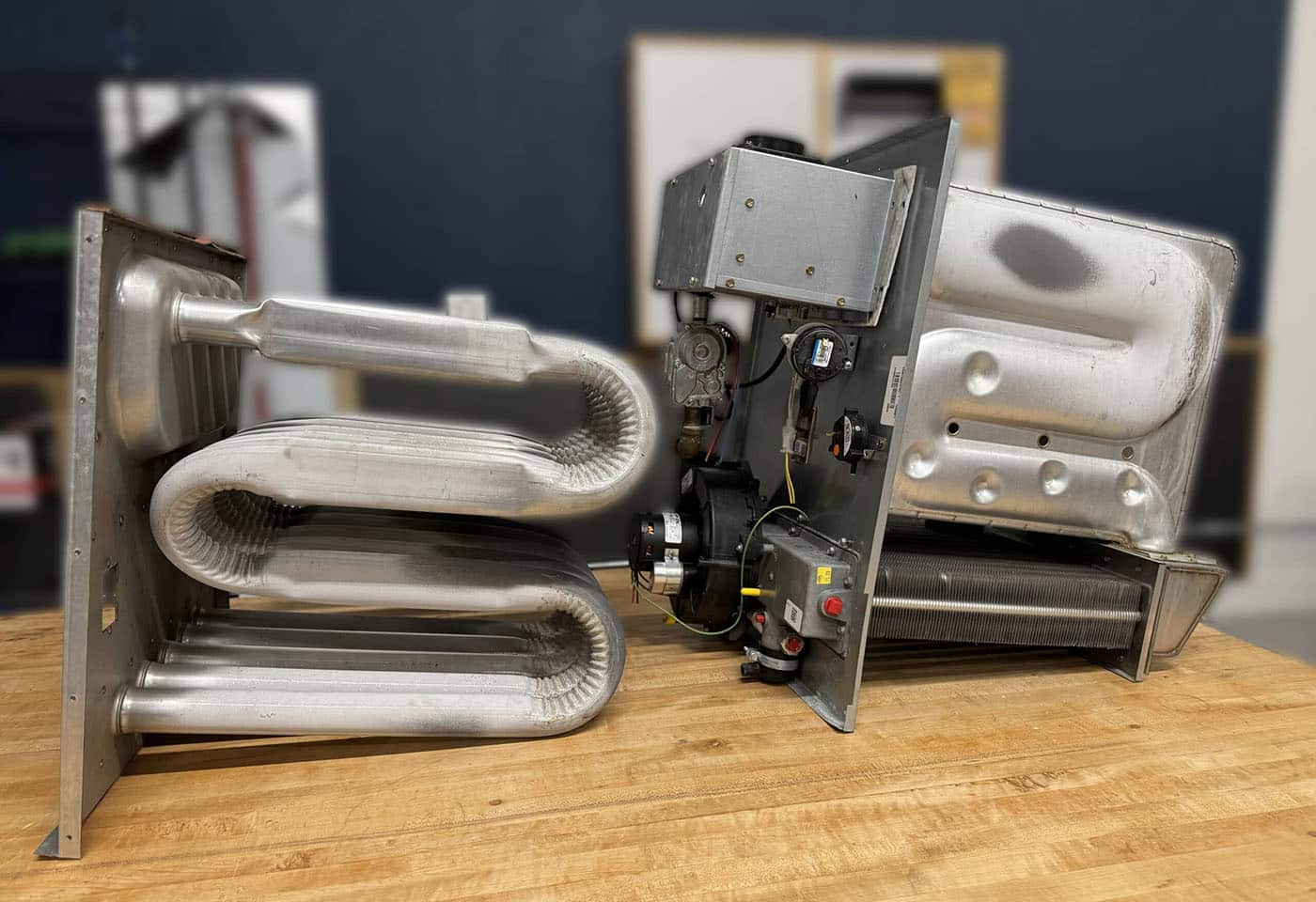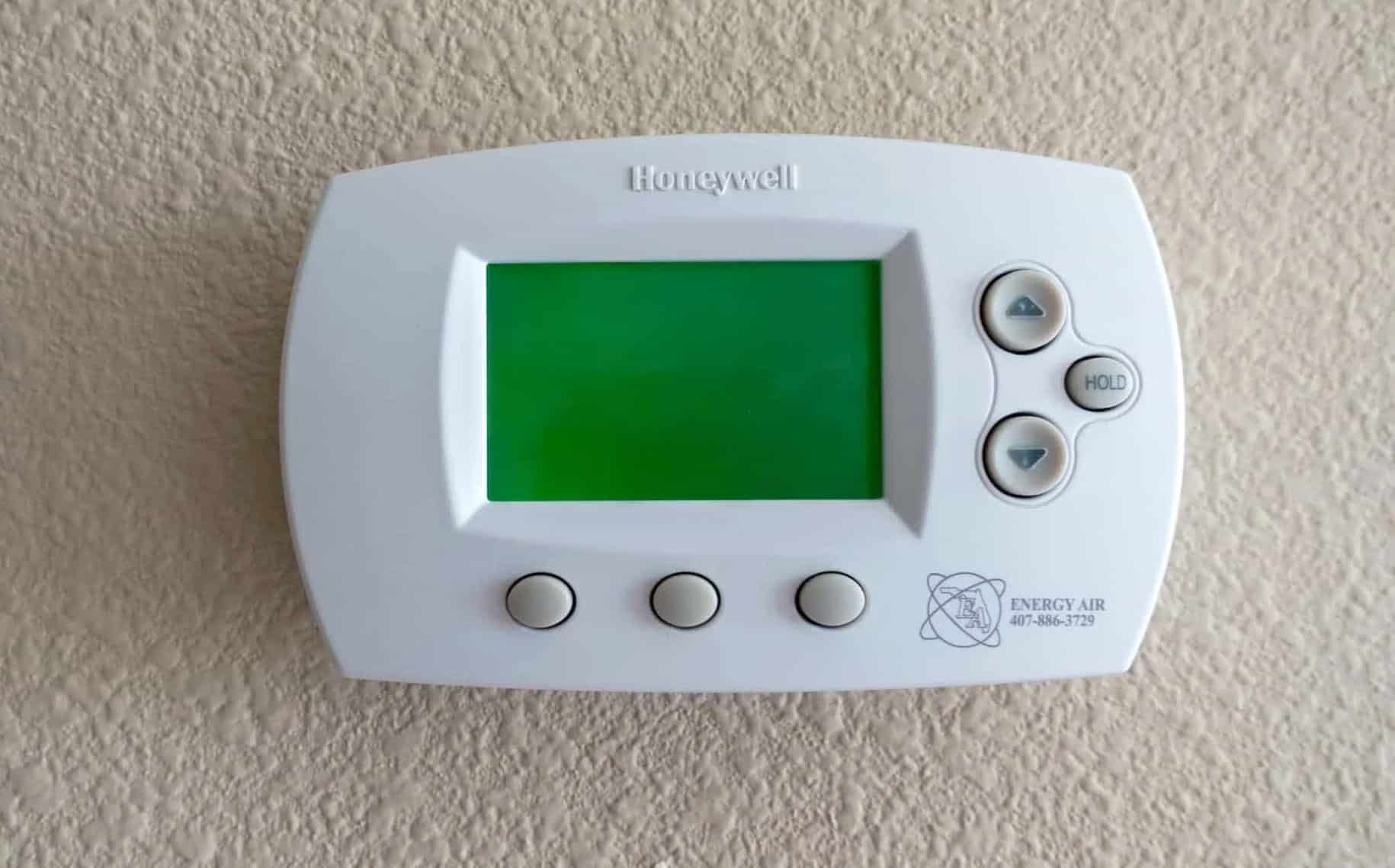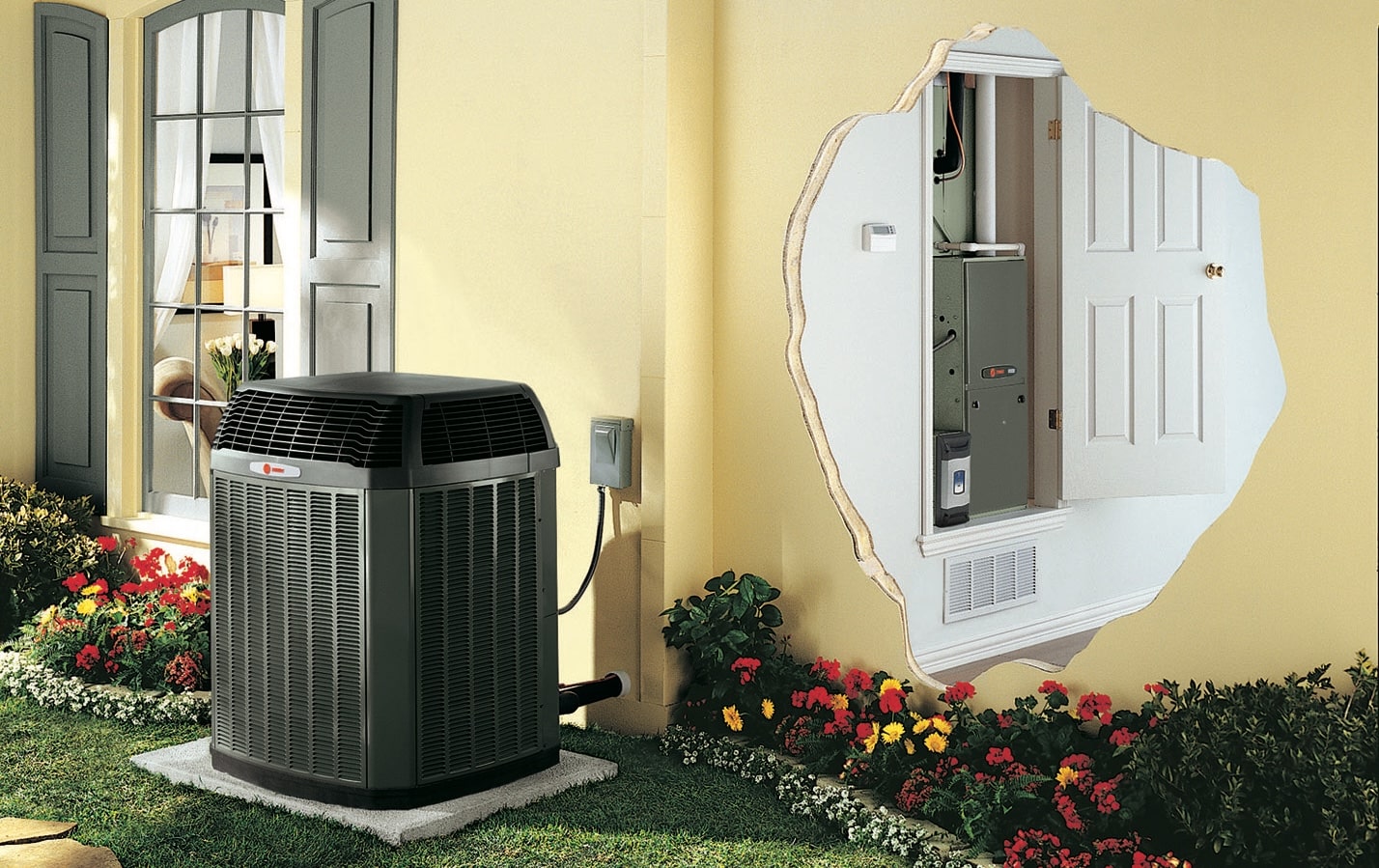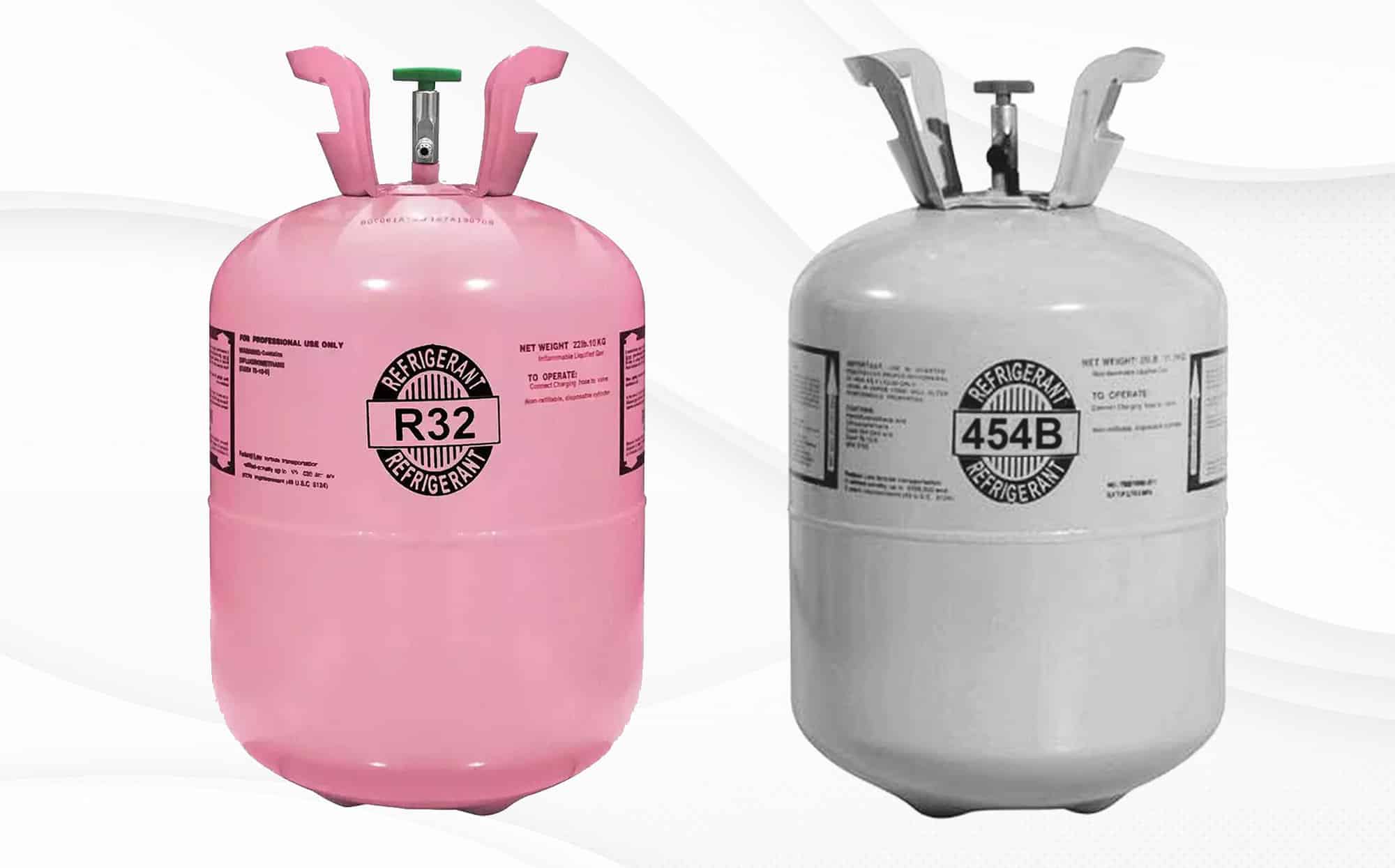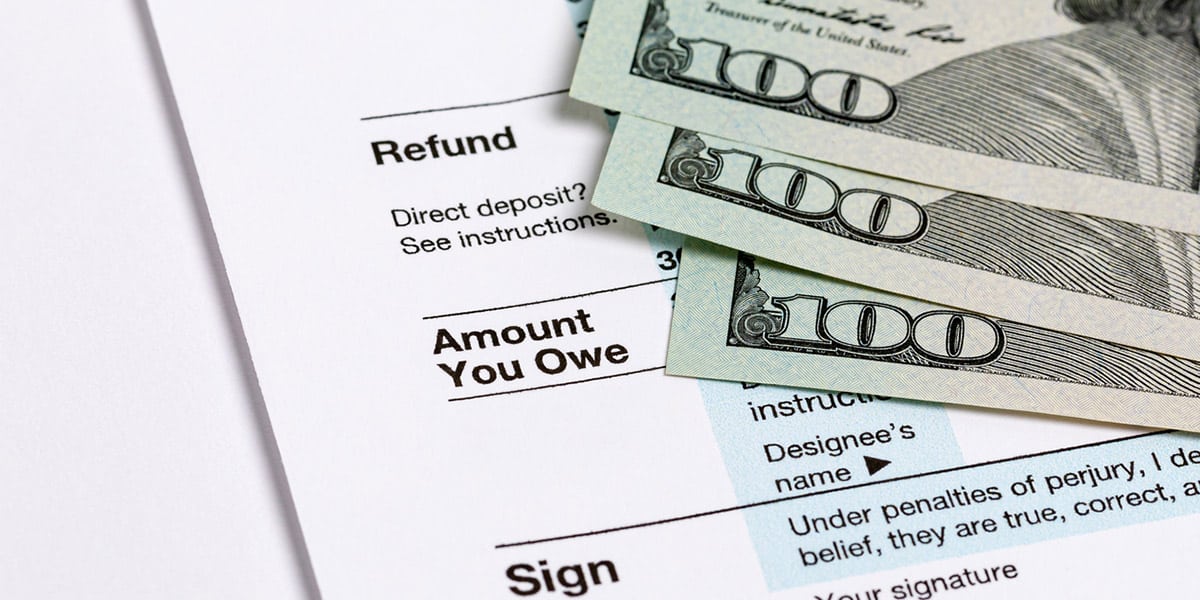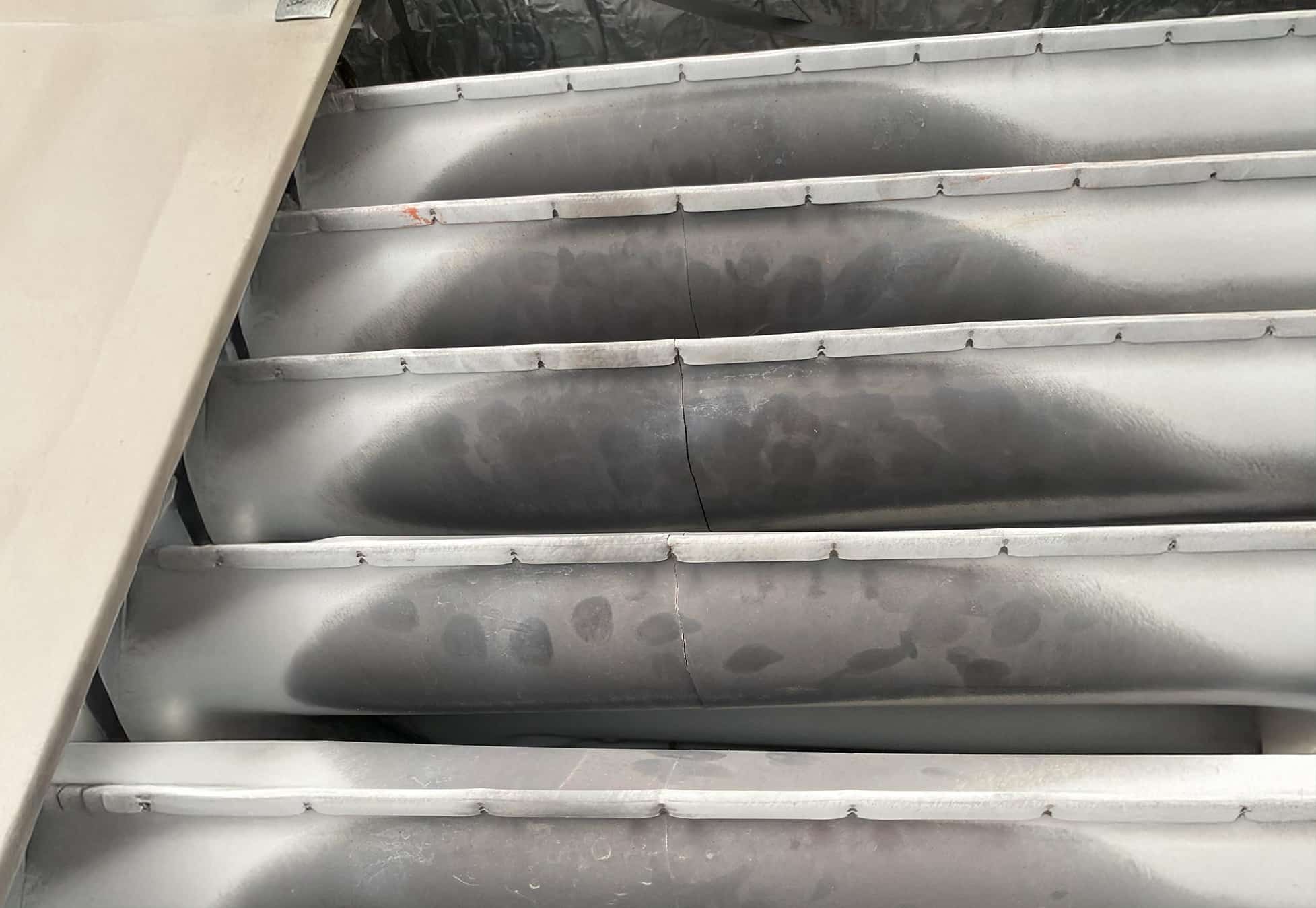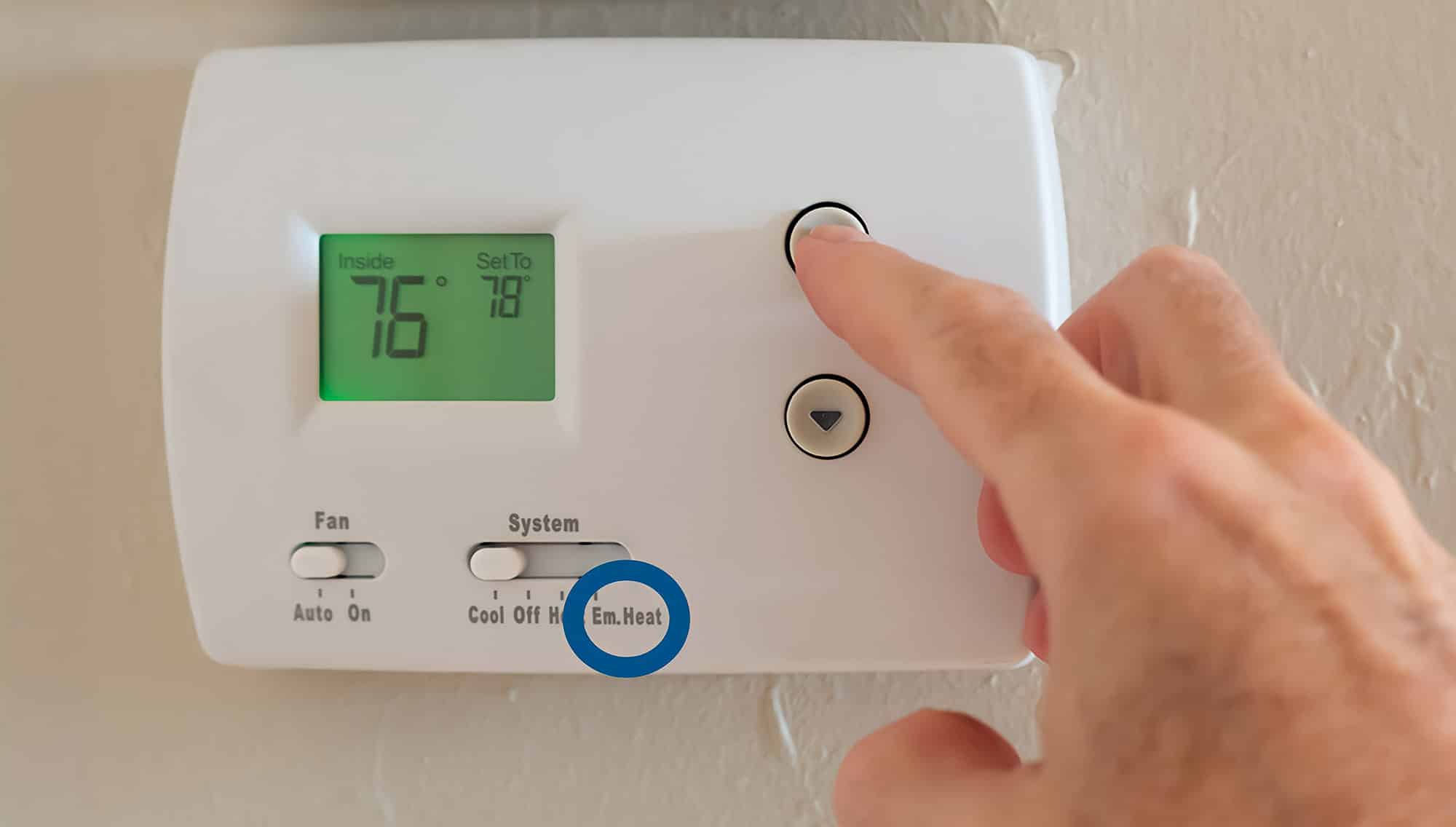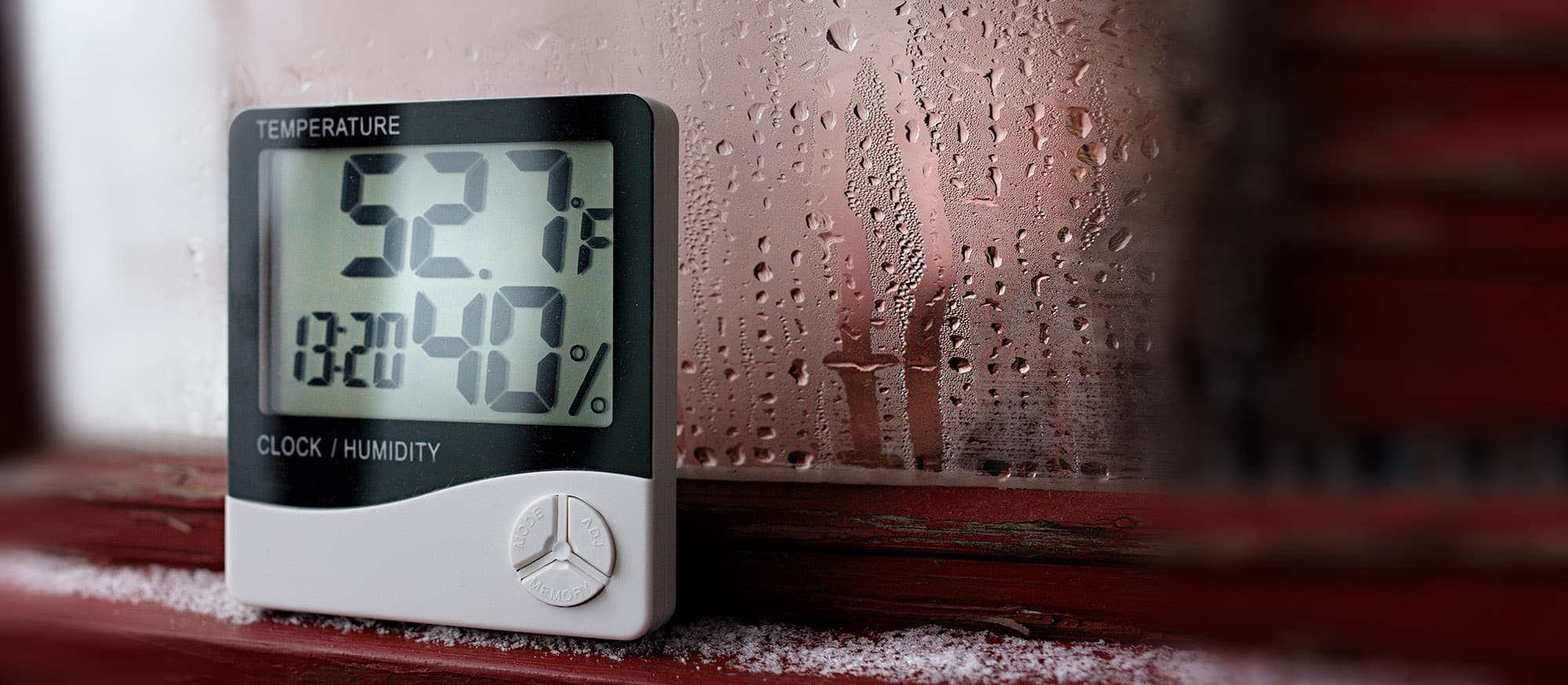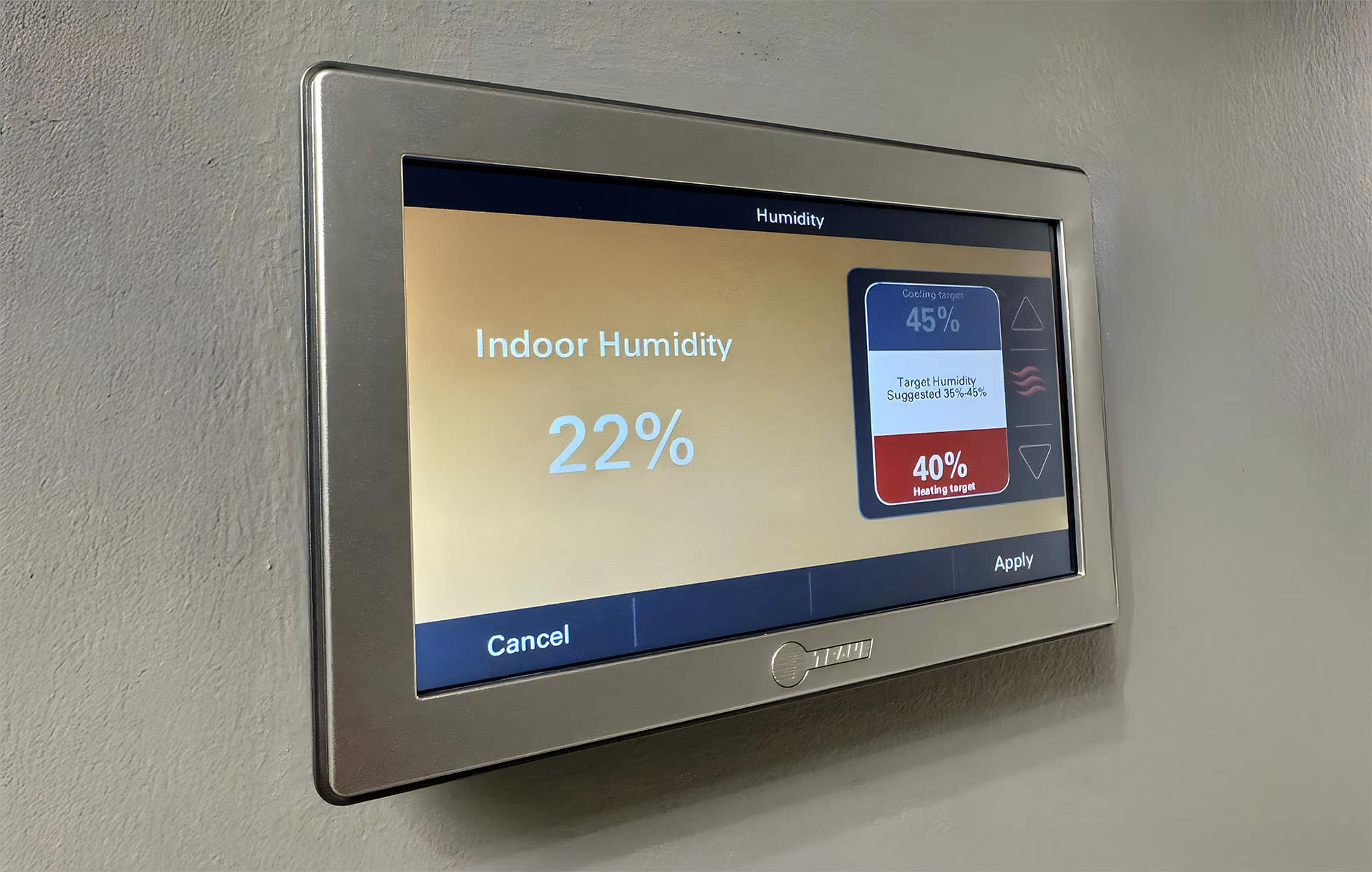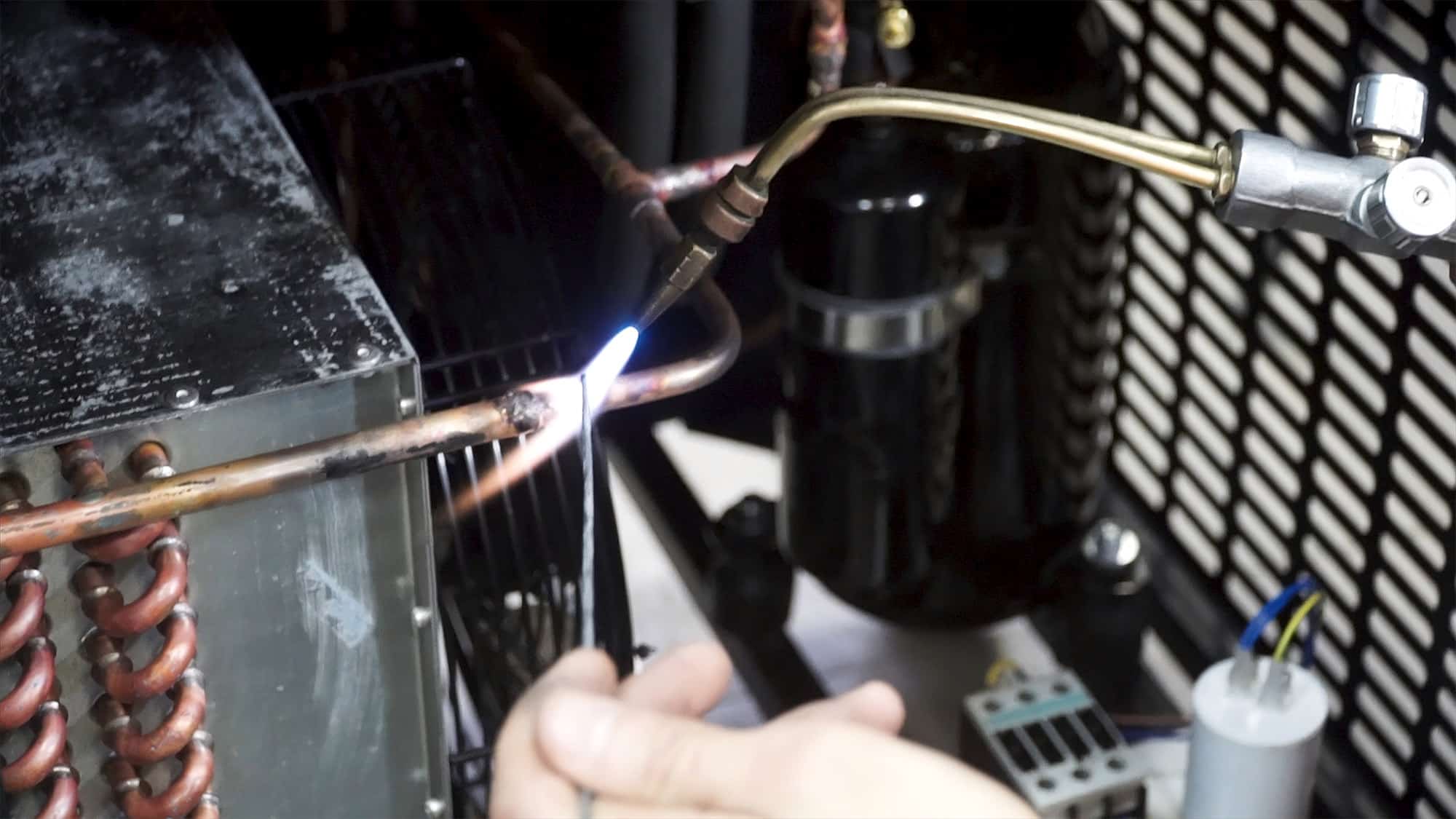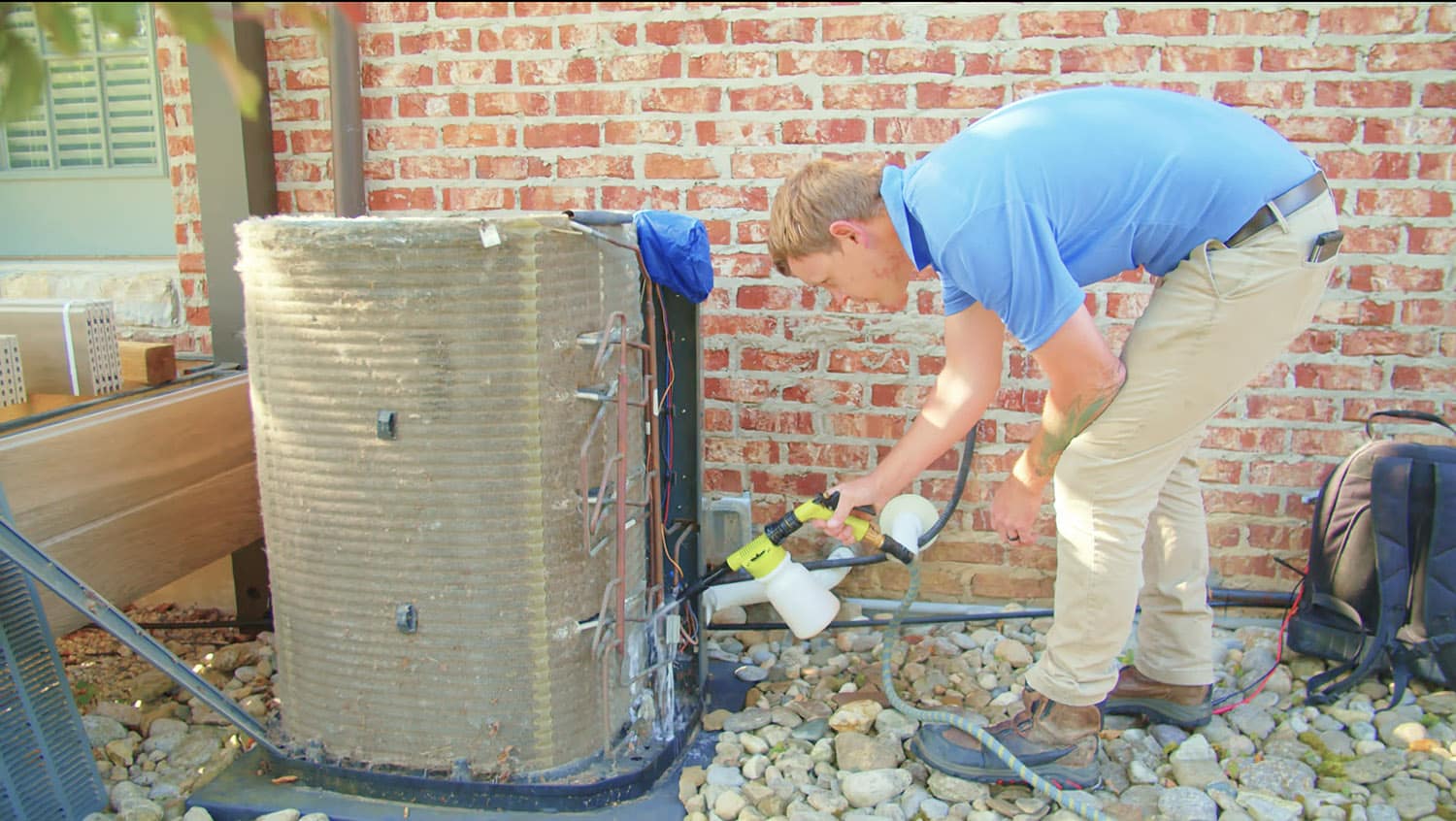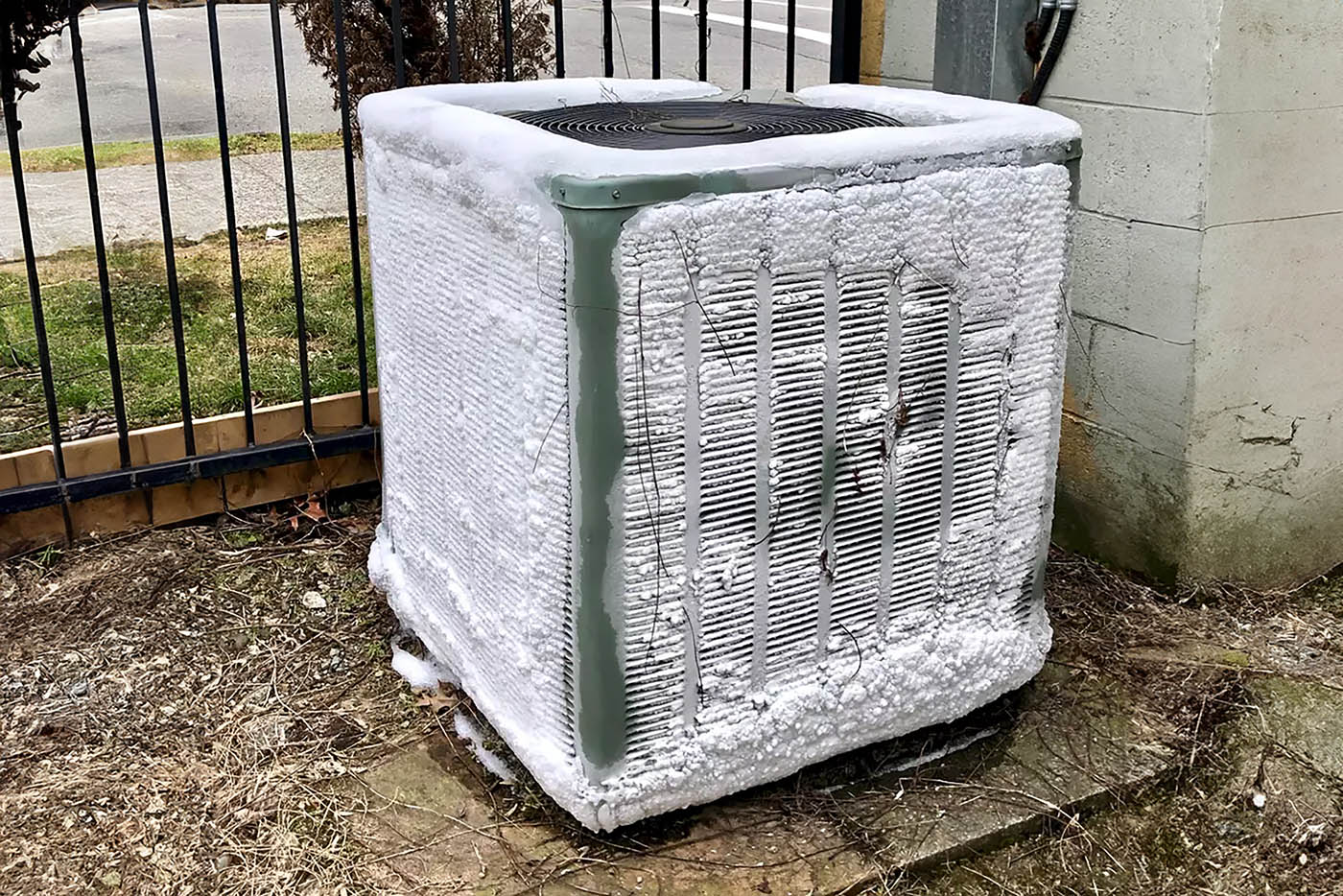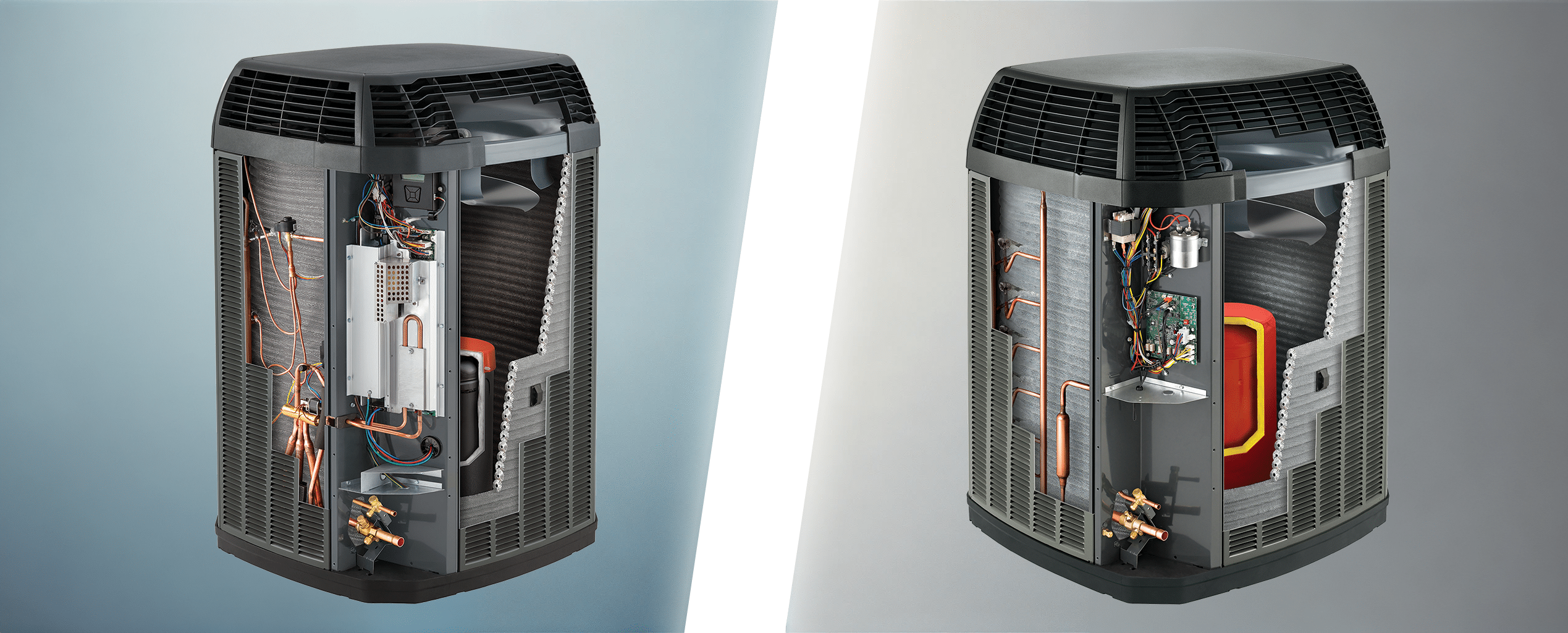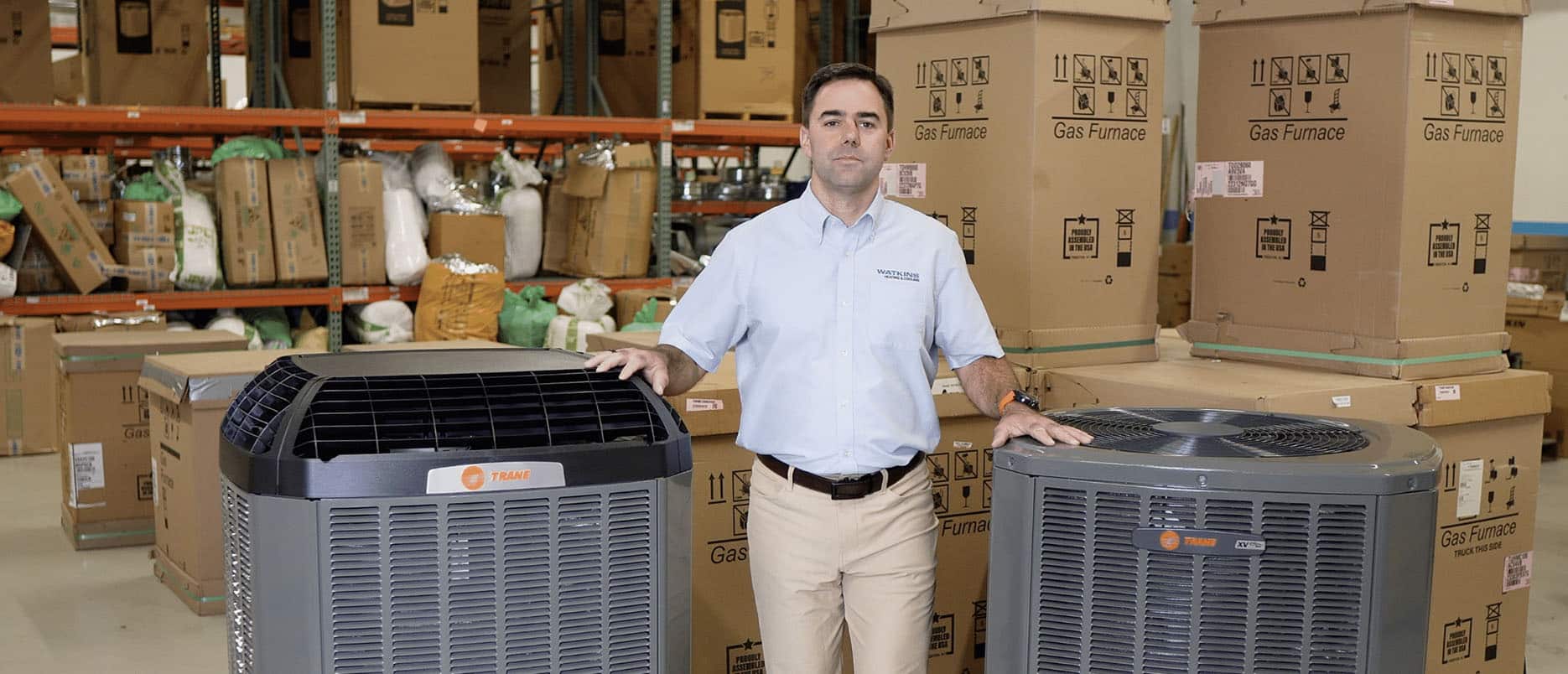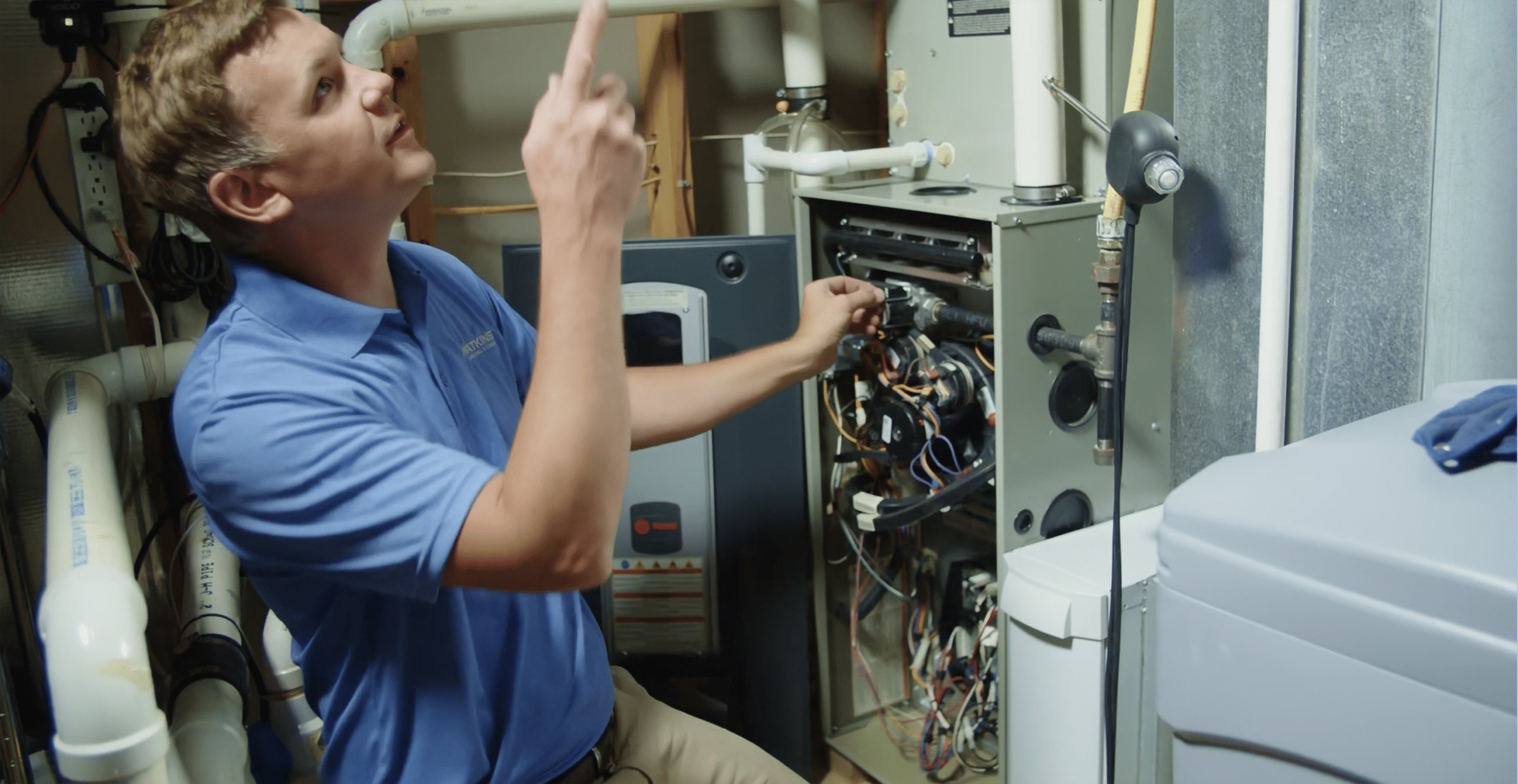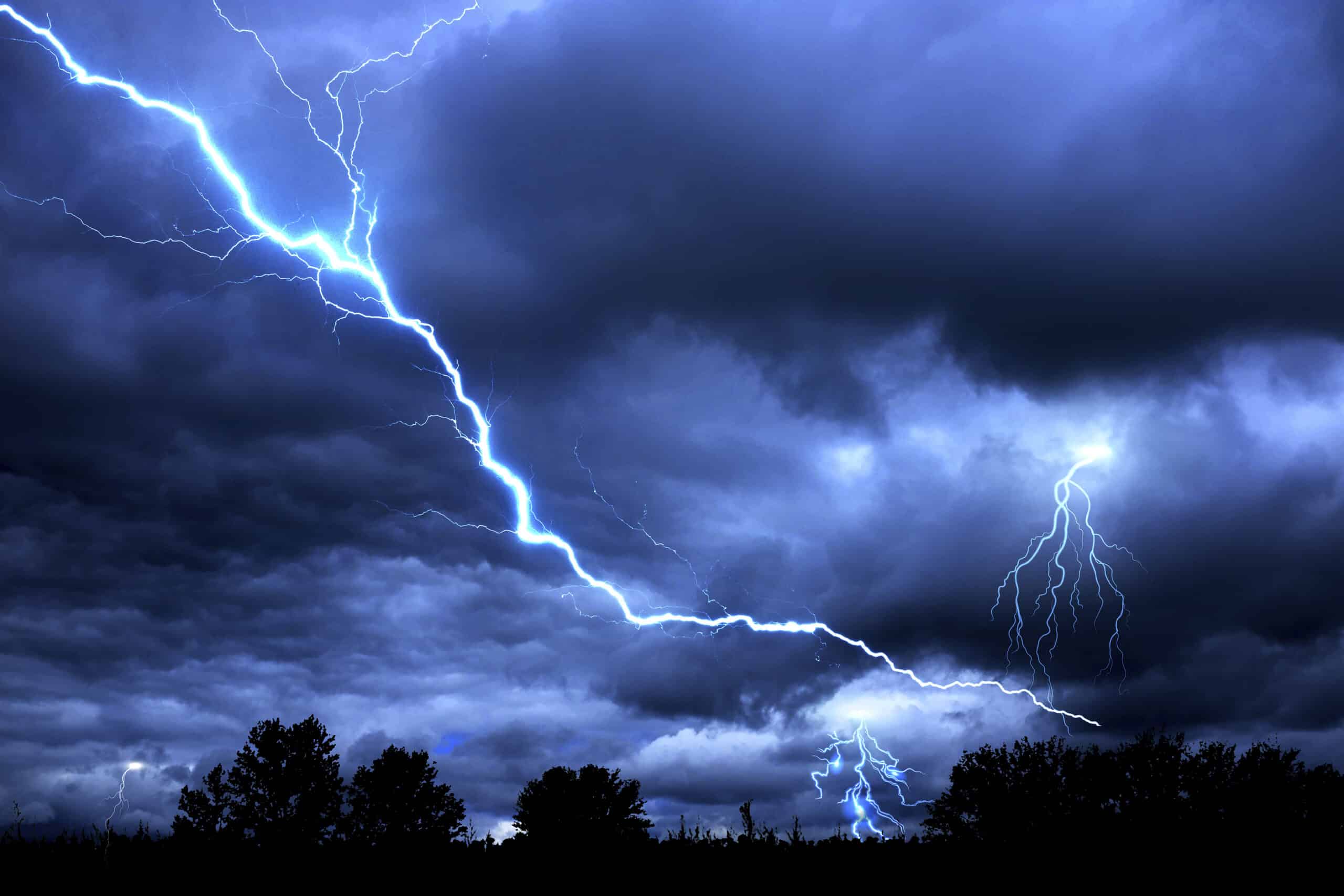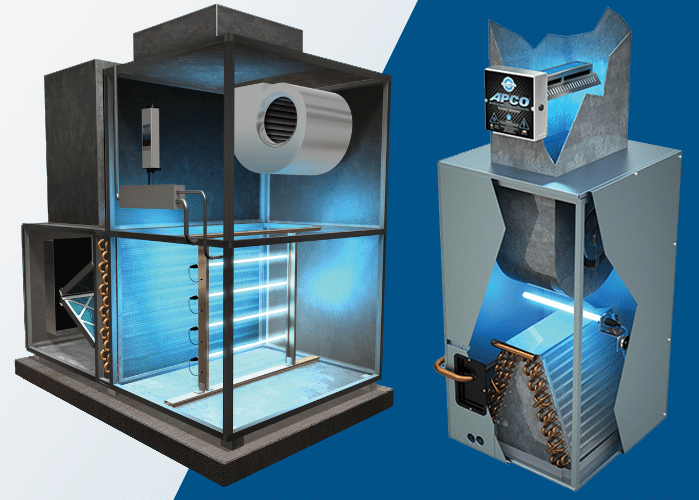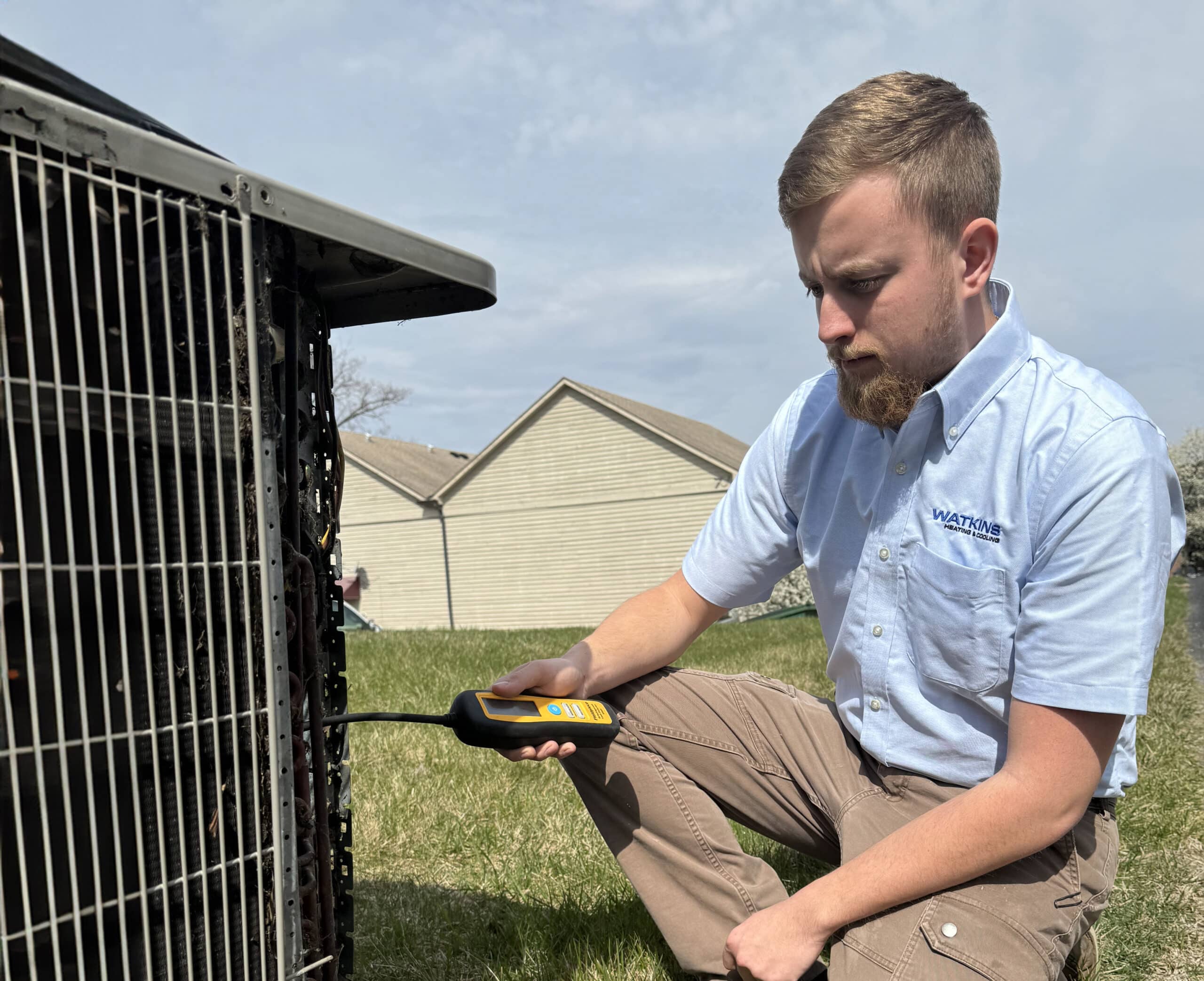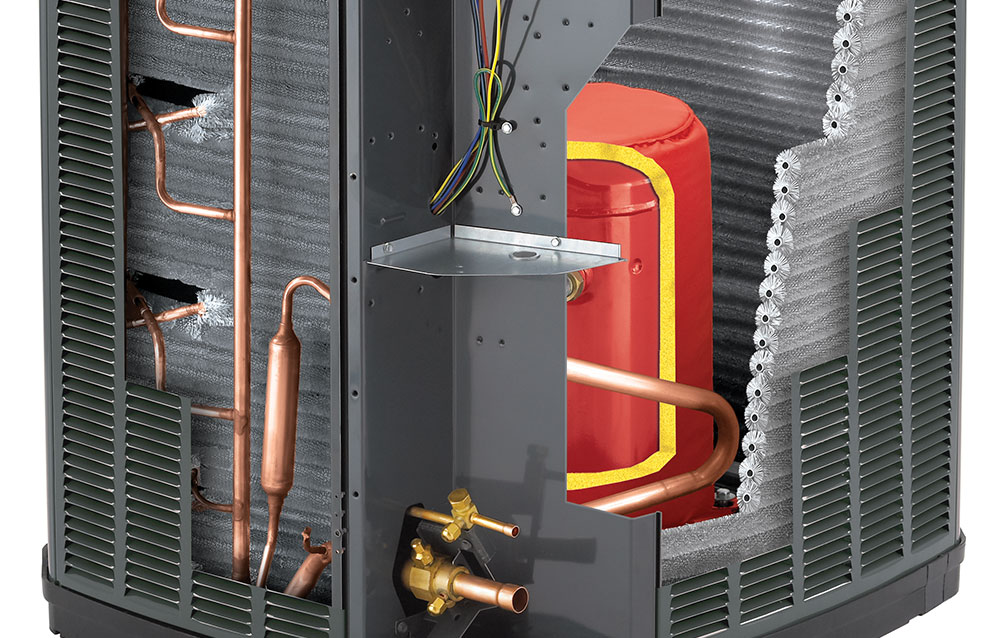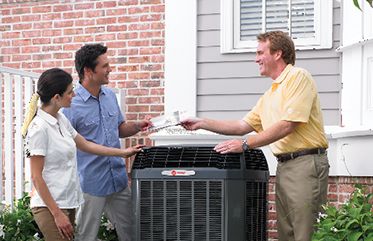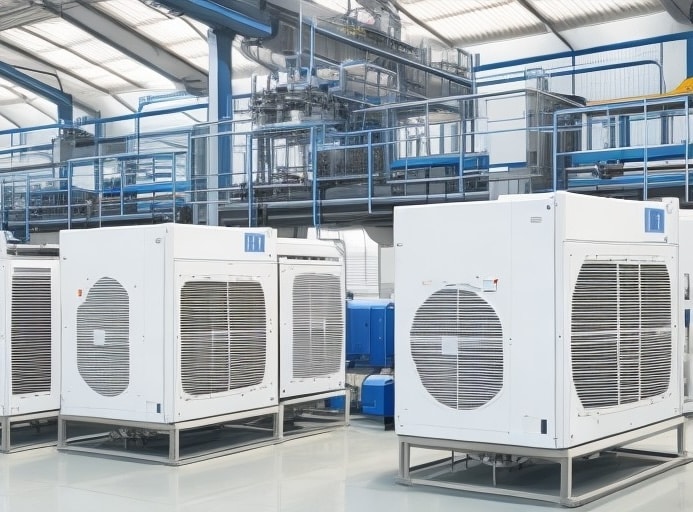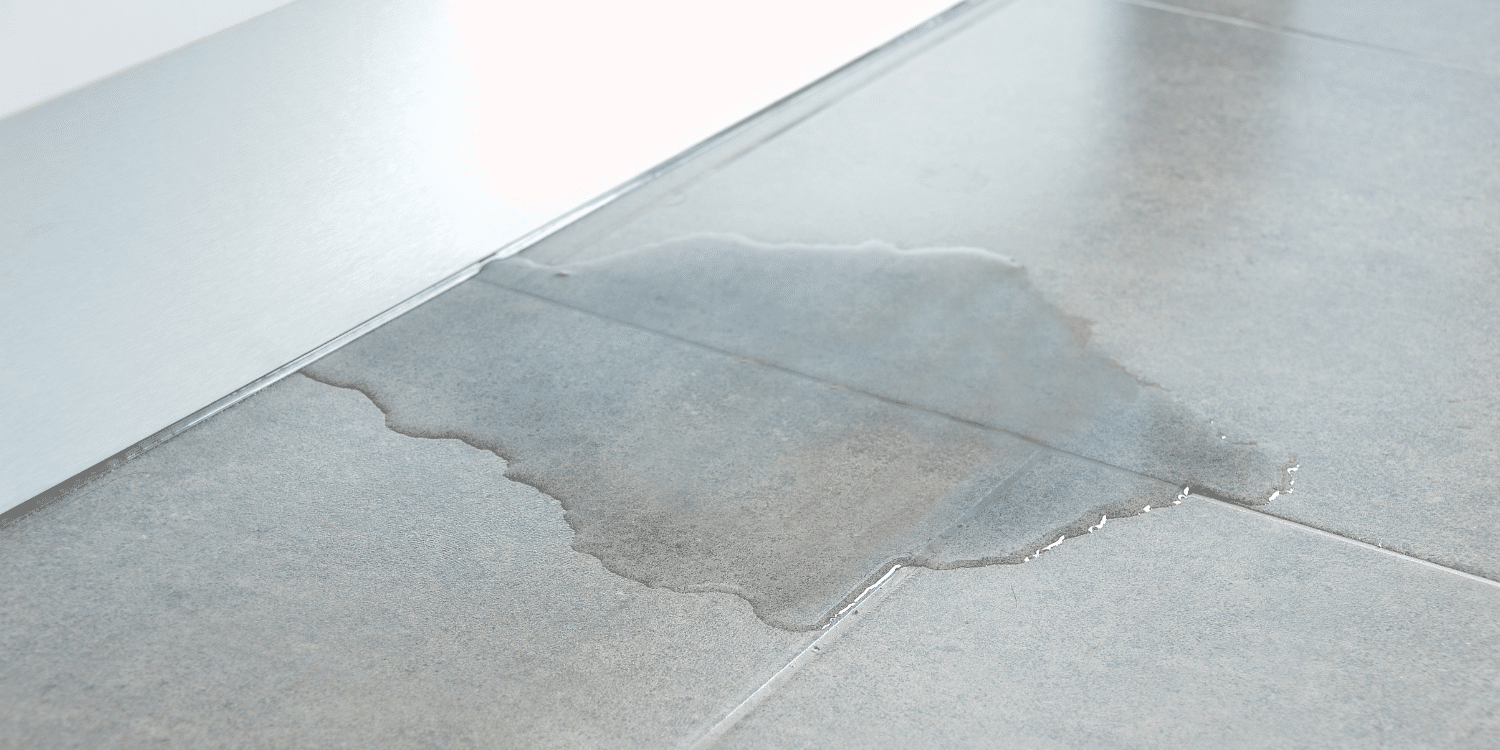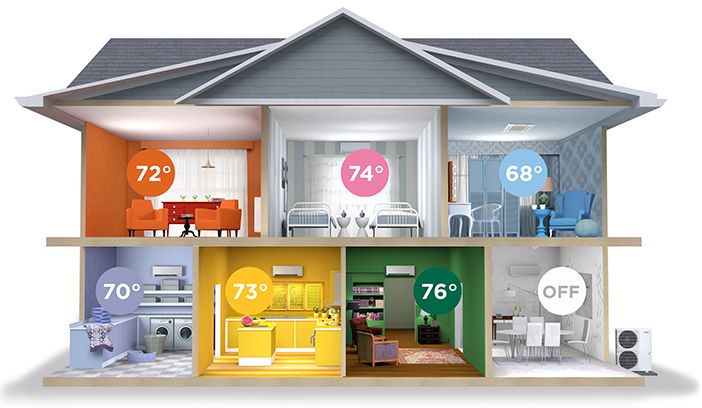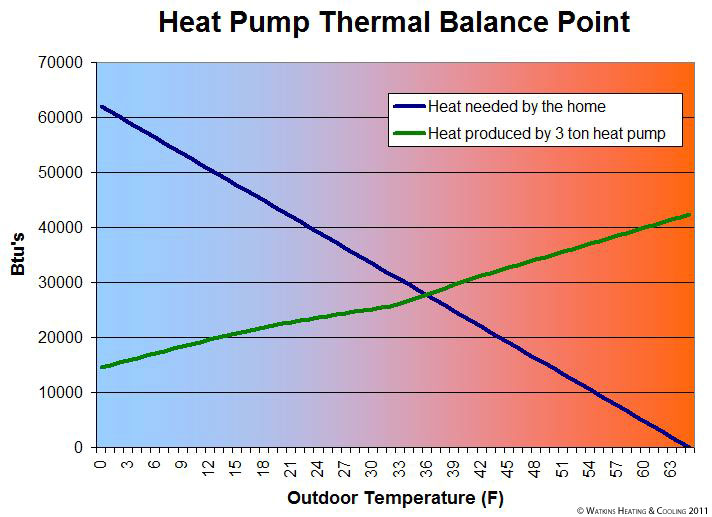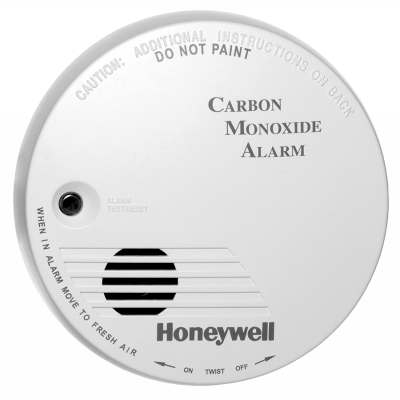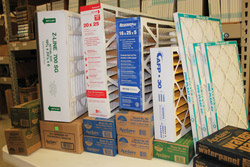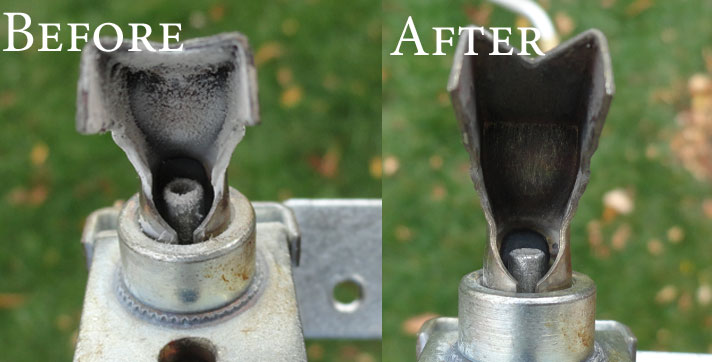Understanding Air Conditioner Lightning Strikes
If you live in the Miami Valley, you’re more than familiar with the regular spring and summer thunderstorms! They can be pleasant to fall asleep to or watch from your front porch, but the lightning that comes with a thunderstorm can cause serious damage to your HVAC system.
When lightning strikes around your home, it can lead to damaging power surges that impact a wide range of electrical devices. One of your home’s most expensive and critical devices in danger of these surges is your air conditioner or heat pump. In this blog post, we’ll discuss how you can protect your HVAC investment from the damaging effects of lightning strikes and power surges.
Is it safe to use your A/C during a lightning storm?
First off, it’s important to note that direct lightning strikes are extremely rare. More commonly, we see nearby lightning strikes to the electrical system causing power surges in your home. These can range from a momentary blip to a huge voltage spike that fries multiple appliances. Modern AC units and home electrical systems are designed to handle minor surges with no problems, while a direct lightning strike will destroy anything in its path. When we get calls from customers with air conditioners damaged in a storm, it’s nearly always because a nearby power line or transformer was struck by lightning, not the actual air conditioner itself.
If your air conditioning system is running during a thunderstorm, it is more likely to be damaged by a nearby lightning strike or power surge. A running A/C does not, however, increase the chances of personal injury. Weather experts always recommend avoiding physical contact with any electrical appliance or water faucet during a storm. Check out these t-storm safety tips from weather.com.
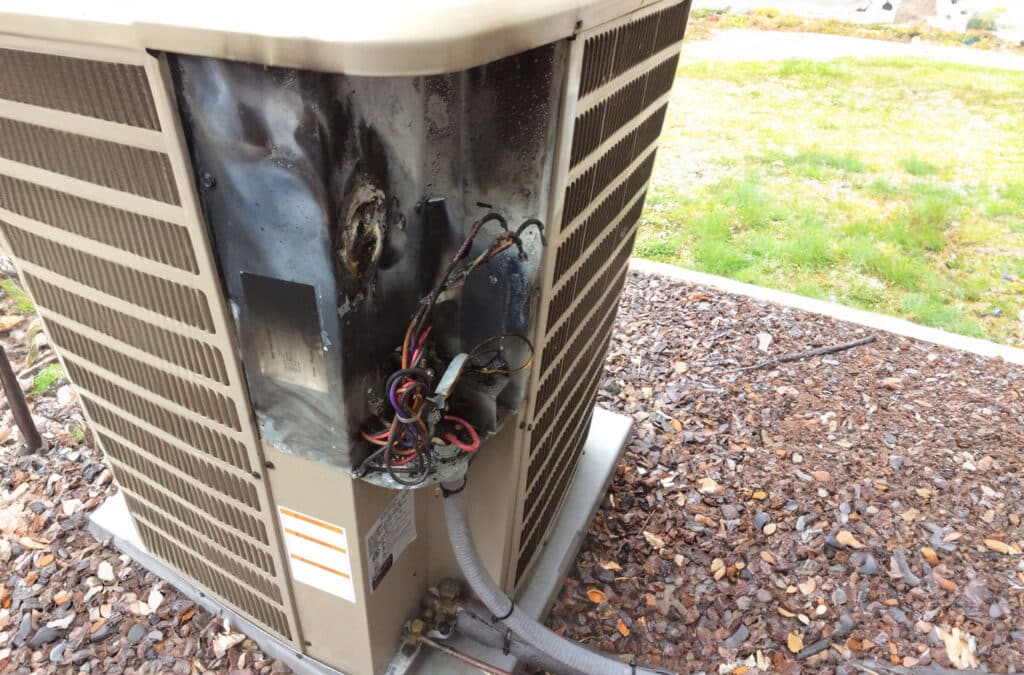
Turn Your Air Conditioner Off During a Storm
If a severe thunderstorm is approaching your area, our HVAC expert recommendation is to turn off your air conditioner. Most air conditioners turn on using a contactor (basically a giant light switch). When the contactor disengages, all the high-voltage components in the air conditioner are disconnected from the electrical grid, including the compressor, capacitor, and fan motor. This principle applies to most heat pumps as well.
It’s important to note that modern units equipped with ECM motors and inverter-driven compressors do not use contactors and relays. Consequently, these advanced systems remain vulnerable to power surges even when turned off. Turning off the breaker is the only way to isolate the electrical system from the grid.
Protect your air conditioning unit with surge protectors
Turning off your air conditioning unit may prevent damage, but what if you’re not home or the lightning storm hits during the night while you’re asleep? Given the frequency of storm-related damage, it’s crucial to protect your system 24/7. Homeowners automatically know to protect our television and computer with a surge suppressor. So why not use this protection for your HVAC system (an even pricier and more essential investment)?
HVAC surge protectors serve as a buffer between your cooling system and voltage spikes by absorbing or diverting the excessive electrical current away from the equipment. Investing in high-quality surge protectors specifically designed for your ac unit can prevent electrical damage, saving you money on costly repairs. This protection should extend beyond your ac unit to your full HVAC system, giving you peace of mind that your home’s comfort will remain reliable, even through Spring storms.
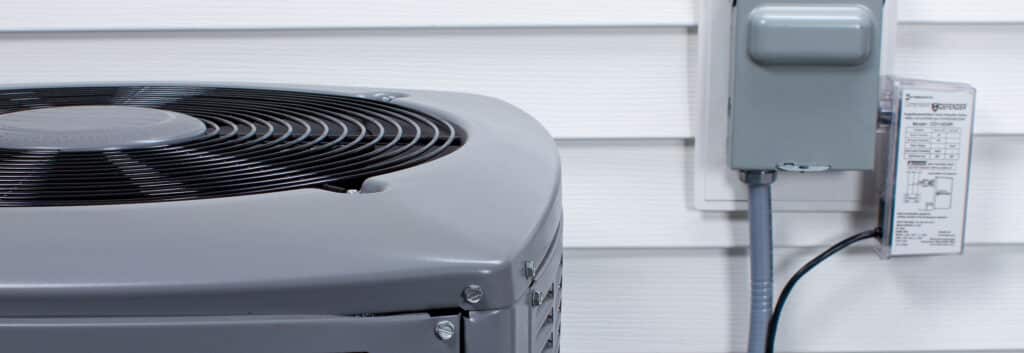
How to prove to the Insurance Company that HVAC damage is from a lightning strike or power surge
When a homeowner contacts us about lightning damage to their air conditioner, the first question they usually ask is, “Will my insurance company cover the repairs?” Replacing expensive parts within the air conditioner or even the entire unit can be a financial headache. Having the insurance company handle the repair expenses can be a game-changer.
The most important aspect of a successful insurance claim is documenting as many aspects of the event as you possibly can. Here are some of the key recommendations to help you make a strong case to the insurance adjuster:
- Professional Inspection: This is the most important piece of evidence for your case. If your air conditioner quits immediately after a thunderstorm, your first call should be to a professional HVAC service company like Watkins Heating & Cooling. Our technicians will complete an inspection of the unit and provide a report of our findings – crucial to supporting your claim.
- Pictures of Damage: Photographic evidence is an important part of proving your AC unit was harmed by lightning. As with any accident, your insurance company will ask that you take clear photos of the damage from multiple angles to visually document the impact.
- Weather Report: Gathering a weather report from the time and date of the thunderstorm that damaged your air conditioning unit can be a great aid in substantiating your claim. The National Weather Service, for example, has great tools to help you pull storm reports from the specific day in question.
Of course, homeowners want us to confirm AC lightning damage in every scenario so that their insurance will cover the repairs – even if the evidence is lacking. While we obviously cannot participate in insurance fraud, if you genuinely experienced air conditioner damage during a thunderstorm, then our HVAC specialists are here to assist in documenting the evidence of a power surge and get the insurance coverage you’re entitled to.
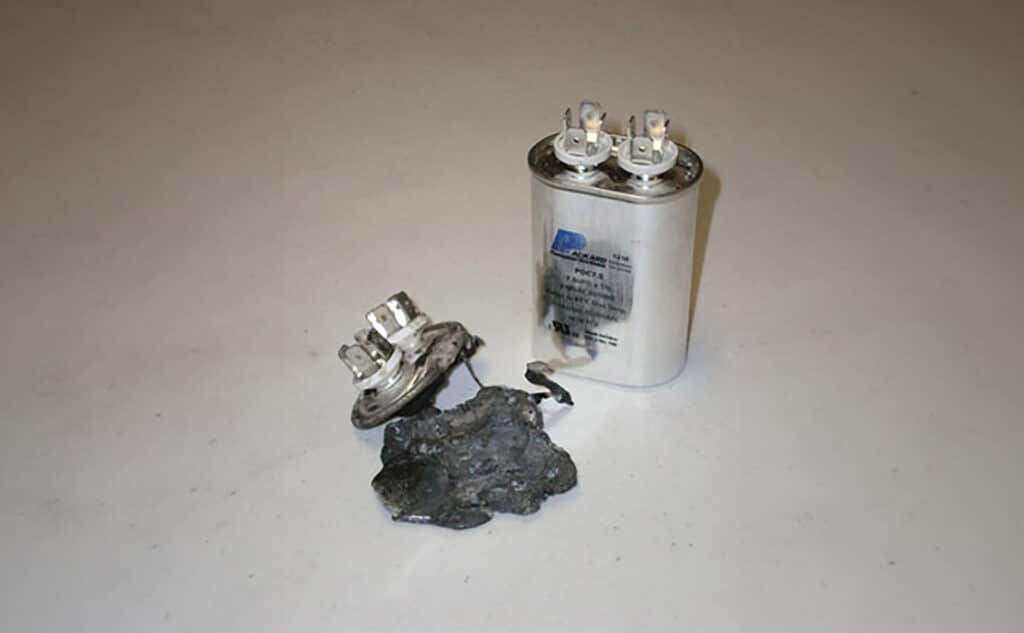
Signs of a lightning strike or damaging power surge
When documenting to your insurance provider that a lightning strike is responsible for your AC unit’s failure, here are some of the telltale signs we look for:
- Exploded capacitor: Capacitors tend to be the most sensitive part on an air conditioner or heat pump. Your AC system has multiple capacitors which help the blower motor, outdoor fan, and compressor to operate properly. Unfortunately, they are known to fail due to overheating and age, and a strong power surge can cause them to melt or even explode.
- Melted Wiring: If the surge is strong enough, our technician may find charred or melted wires inside your furnace or A/C unit. Melted wires would indicate a severe voltage spike hit while the unit was running. This symptom presents only with a very powerful surge or nearby lightning strike.
- Non-responsive Thermostat: Your thermostat runs on low voltage and is somewhat protected by the transformer and low voltage fuse in your furnace. However, smart thermostats can be more sensitive to power surges damaging internal components.
- Tripped Circuit Breaker: If your HVAC system is running during an electrical storm, a spike in electrical voltage will momentarily increase current. Breakers and HVAC fuses have a short time-delay before tripping. This design prevents nuisance tripping due to normal inrush current when the system starts. A power surge is usually too brief to trip the breaker, but this could be a sign if coupled with other damage.
- Other Affected Electronics: When we see power surges strong enough to damage an air conditioning system, other household electronics and appliances are often affected as well. Any electronics plugged in during the strike, such as TVs, computers, and internet routers may have stopped working at the same time as the thunderstorm. Widespread damage throughout your home is strong evidence that the electrical storm was the culprit.
Which HVAC Components Are Most Sensitive to Power Surge?
A few specific components in your AC unit are particularly susceptible in the event of a power surge caused by lightning. When our HVAC technicians find lightning damage to a customer’s equipment, it is nearly always to one of the following parts:
- Capacitor – A burnt capacitor is the most common component our experts see damaged following a lightning storm. Capacitors help your AC motor run by holding and releasing electrical energy within very specific voltage limits, so when a surge pushes the voltage beyond these limits, it can lead to immediate failure or degradation of the capacitor’s insulation material.
- ECM Blower Motor – Motors for the furnace blower and outdoor fan have windings that can be damaged by over-current. Especially at risk are ECM motors found in high-efficiency units. Inside the ECM drive module, tiny capacitors work to modulate electric supply to a permanent magnet motor. When they fail, the whole motor assembly must be replaced.
- Compressor – Our HVAC technicians frequently see burnt compressor windings after major storms. The compressor provides your cooling system with its lifeblood by circulating refrigerant, and its electrical windings are vulnerable to damage from excessive current.
- Control Board – Your AC’s control board acts as the brain, regulating the system’s overall functions and its microprocessors and electronic circuits can be easily damaged by spikes in voltage.
- Thermostat – Particularly with today’s modern “smart thermostats,” a strong electrical surge can either disrupt the digital communication between the thermostat and air conditioner or fry its electronic components altogether.
An HVAC surge protector, correctly installed on the indoor and outdoor units, will protect all of these components and help you avoid expensive repairs to your HVAC equipment. Ask your service technician about the right solution for your home.
For complete peace of mind regarding your HVAC system and home, Watkins Heating & Cooling is ready to assist with insurance claims, repairs, and replacement, ensuring your comfort and safety through every season.
